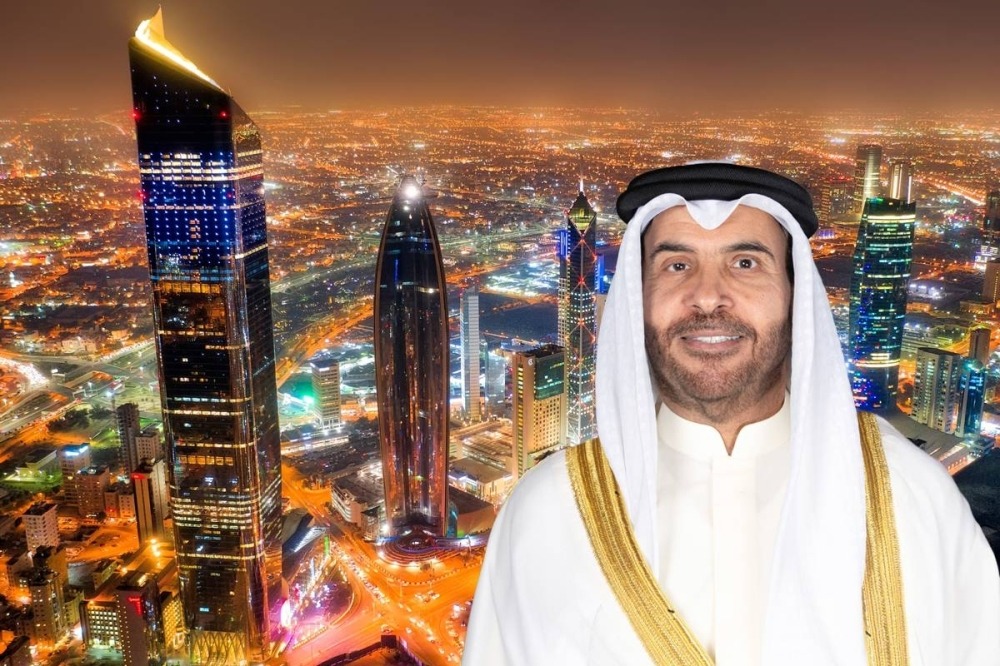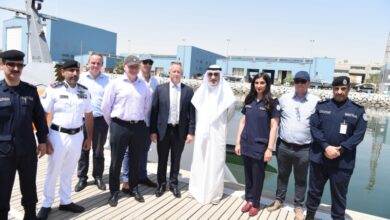Kuwait expects KD 18.9 billion in 2024-2025 budget revenues
If spending continues unchecked, the country may dip into reserves to cover a projected KD 5.6 billion deficit in fiscal year 2024-2025.

• The total expected expenses in Kuwait’s general budget are estimated at KD 24.5 billion, down 6.6 percent from the previous fiscal year.
• Kuwait recorded a deficit of about KD 33 billion in its final account over the past ten years, which was funded from the state’s public reserves, with an expected budget deficit of around KD 26 billion over the next four years.
• Dr. Anwar Al-Mudhaf, Minister of Finance and Minister of State for Economic Affairs and Investments, emphasized the importance of directing “support to those who truly deserve it, stating that it does not make sense to equally support individuals and companies.”
Dr. Anwar Al-Mudhaf, Minister of Finance and Minister of State for Economic Affairs and Investments, highlighted an imbalance in the distribution of subsidies in Kuwait. He pointed out that “subsidies are currently provided to both those in need and those who are not,”according to Al Jarida newspaper.
Dr. Al-Mudhaf emphasized the importance of directing “support to those who truly deserve it, stating that it does not make sense to equally support individuals and companies.”
Al-Mudhaf said in an interview with Kuwait TV that “Kuwait is a rich country, but if the current pace of spending continues without implementing reforms, we will have to resort to the reserves to fill the budget deficit expected during the current fiscal year (2024 – 2025) of about KD 5.6 billion, compared to the expected revenues of KD 18.9 billion, which decreased by 2.8 percent from the previous year.”
New job opportunities
He added that the total expected expenses in the general budget are estimated at KD 24.5 billion, down 6.6 percent from the previous fiscal year. He pointed out that Kuwait recorded a deficit of about KD 33 billion in its final account over the past ten years, which was funded from the state’s public reserves, with an expected budget deficit of around KD 26 billion over the next four years.
He stressed that financial sustainability is the primary and most overarching goal of reforms, which aim to diversify sources of income rather than relying solely on oil. Additionally, these reforms seek to create new jobs through the participation of the private sector.
Regarding state land, Al-Mudhaf pointed out the idea of re-pricing them according to the type of projects and initiatives, commenting that “the state’s territory is a very valuable asset, and their re-pricing is a principle.” He mentioned ongoing discussions with China to begin the completion of the Mubarak Al-Kabeer Port.
He emphasized the role of Velka Island in promoting tourism, stating that the Chinese government has assigned a Chinese company to implement the Mubarak Al-KabeerPort project. He added, “Correspondence is now underway to soon start completing the Grand Development Port,” highlighting Velka Island’s significant role in enhancing tourism.
He stressed that sustainability and equity are crucial for any forthcoming financial reform, emphasizing that the pillars of economic reforms are supported by His Highness the Amir Sheikh Meshal Al-Ahmad Al-JaberAl-Sabah.
Aseel Al-Munifi, the Undersecretary of Ministry of Finance, said that the state needs to balance oil revenues with other sources of income, noting that one of the weaknesses in the national economy is its reliance on a single income source—oil.
Al-Mudhaf said that financial sustainability is the primary and overarching goal of reforms aimed at diversifying sources of income, rather than relying solely on oil, and creating new jobs through private sector participation.
He explained that over the past ten years, Kuwait recorded a deficit in its final account amounting to about KD 33 billion (approximately $107.6 billion), which was financed from the state’s public reserves. He noted that “the expected budget deficit over the next four years is estimated at KD 26 billion (approximately $84.8 billion).”
He pointed out that “Kuwait is a rich country, but if the pace of spending continues without reforms, the reserves will need to be tapped to cover the budget deficit.”
Regarding state land, the minister emphasized the need to re-price them based on the type of projects and initiatives, stating that “the state’s land remains a valuable asset, and re-pricing them is a fundamental principle, this asset is given to projects at a low cost, and the pricing of these valuable lands must now be reconsidered,” the minister added.
Saad Al-Alati, the Assistant Undersecretary for the General Budget Affairs Sector, explained that the state’s general budget is a plan for expenditures based on estimated figures, but the actual figures are reflected in the final state account.
Regarding major projects, the Minister of Finance stated that the China has assigned a “Chinese company to implement the Mubarak Al-Kabeer Port. Currently, correspondence is underway between the Chinese company and its Kuwaiti counterpart to initiate the completion of the large-scale development port soon.” He also noted that consultations extend to several other development projects, including the Shagaya Renewable Energy Project.
The minister stressed that the state is currently preparing financial reforms and has future projects that will contribute to transforming Kuwait’s landscape to align with developments in the Gulf region.
Failaka Island set to spark tourism revival
He noted that Failaka Island will play a significant role in enhancing the tourism sector. Additionally, he emphasized, “The state’s territory remains a highly valuable asset, and the principle of its repricing is fundamental.”
Kuwait initiates major port development in collaboration with China
Aseel Al-Munifi stated that the budget deficit is caused by the reliance on a single source of income, which is oil, with commitments to specific quotas in its production. She emphasized the “need for the state to achieve a balance between oil and non-oil income.”
Al-Munifi added that revenues decreased due to Kuwait’s reduced share of total oil production within the Organization of the Petroleum Exporting Countries (OPEC). Meanwhile, expenses decreased after setting a ceiling to rationalize spending in the budget. She clarified that the reduction in capital expenses doesn’t indicate a decline in the state’s capital spending.
She stated that salaries and subsidies from the estimated budget represent about 78.8 percent of its total value, with salaries amounting to KD 14 billion (approximately $45.6 billion), and various subsidies amounting to KD four billion (about $13 billion).
Saad Al-Alati, for his part, mentioned that the budget is prepared by estimating the price of a barrel of Kuwaiti oil according to the accounting principle of “caution and prudence,” which serves as a hedge for future budget planning.
He clarified that the state budget is an exchange plan based on estimated figures, with actual figures being reflected in the final state account.














